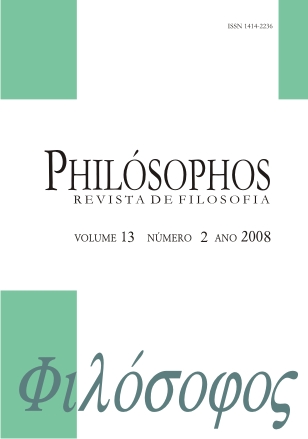TO READ THE PROJECT UNDER AN ETHICS PERSPECTIVE
DOI:
https://doi.org/10.5216/phi.v13i2.8442Keywords:
pleasure-pain, helplessness, Nebenmensch, desire.Abstract
This article discusses some considerations to guide the reading of the Project for a psychology from an ethical perspective. The starting point is Lacan's interpretation in The Seminar, book VII, The Ethics of Psychoanalysis, where he structures his analysis on the opposition between the principles of pleasure and reality and on the understanding of das Ding. Unlike the Lacanian reading, centered on the concept of desire, we firstly emphasize the relevance of the notions of pleasure and displeasure as fundamental. Secondly, we argue that in the Project, Freud sets as the foundations of morality, beyond the couple's displeasure-pleasure, the experiences of helplessness and debt before the next-helper and not the object of incestuous desire, or the object merely formal, as suggested by Lacan.Downloads
Downloads
Published
How to Cite
Issue
Section
License
Authors who publish in this journal agree to the following terms:
- Authors retain copyright and grant the journal right of first publication, with the work simultaneously licensed under a Creative Commons Attribution License that allows others to share the work with an acknowledgement of the work's authorship and initial publication in this journal.
- Authors are authorized to enter into separate, additional contractual arrangements for the non-exclusive distribution of the journal's published version of the work (e.g., publishing in an institutional repository or as a book chapter), with an acknowledgement of its authorship and initial publication in this journal.















